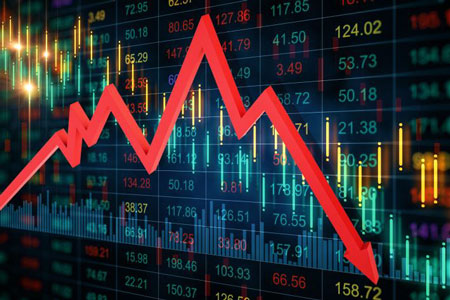An economist explains: What to know about a recession

FINANCIAL MANAGEMENT
David-Alexandre Brassard, CPA Canada’s chief economist, breaks down the definition of a recession and how it may affect the Canadian economy.
A recession is often talked about, but not always understood. “You can have a technical recession and barely feel anything,” says David-Alexandre Brassard, chief economist, CPA Canada. “You feel a lot more with high inflation.”
What is recession?
A recession is defined as two financial quarters of decline in economic activity.
However, while many are worried about a possible recession, unemployment is not rising, explains Brassard. “Growth is slowing down and could go into recession territory in 2023, but we are also experiencing a record low unemployment rate, which is around 4.9 per cent.”
He notes that the current tight labour market–when job openings are growing faster than the pool of applicants–precedes the pandemic and is the result mainly of an aging population. “We have reached an inflexion point recently with more open positions than applicants, but the tightening of the labour market has been building up for a few years.”
The recession that occurred at the beginning of the pandemic was a true unforeseen economic shock. Luckily it was short-lived, in large part due to the influx of government funding. “This time around, economic slowdown and potential recession could be a downward adjustment rather than a major economic shock,” says Brassard. “That means higher interest rates driving people to spend less which in turn would lead to businesses making less and, ultimately, less economic output.”
Interest rate hikes have already slowed economic growth, which Brassard says will continue until the end of the year. “One upside is that we saw a large surge of savings during the pandemic, which is acting as a buffer and allowing consumers to still spend money on their homes and take vacations during the summer. With the level of household debt being particularly high, however, things should adjust more quickly on the consumer side towards October and November and into the next winter.”
A particular issue in the current context is that consumers may have the willingness to spend, but businesses are not in a position to supply them. “This is a different and persistent scenario from the early shocks of the pandemic, in which 40 per cent of the economy was shut down for six weeks,” says Brassard.
Canada’s economic performance
Brassard notes that Canada is doing relatively well on the economic front and is hopeful that this will continue. “We rebounded very well from the pandemic because of the money the government invested in the process. Hopefully, that means Canada’s recession will be smaller than other G7 countries.
For Brassard, the issue facing the Canadian economy is long-term growth. “We have challenges in terms of innovation, productivity and an aging population that signal a long-term struggle. However, Canada has a higher percentage of people working than the U.S., as our immigration policies put us in a better position to grow the labour market.”
Canada also boasts a strong and stable banking environment that has guardrails in place for mortgages, creating a more stable housing market, he notes. Rising interest rates and inflation are also driving a correction in housing prices. “It has already started to cool off our overheated market, which will move the market into the buyer’s favour. However, the impact may be different depending on the city,” says Brassard.
Ways to survive a recession
One of the major challenges facing consumers since February 2020 is that on average, inflation has been growing more than wages.
“At the beginning of the pandemic, inflation was stalling meanwhile wages for maintained jobs were growing” says Brassard. “Right now, purchasing power of the average worker is behind where it was in 2019.”
For those looking to prepare themselves financially, the rules for managing high inflation are also true for a potential recession. Brassard offers the following suggestions:
- postpone major spending where possible
- avoid debt and save where you can. “High interest rates add a layer that makes debt more expensive,” says Brassard
- lock in mortgages and loans to protect yourself from future interest rate hikes
- revisit your investment portfolio with your adviser and adjust your risk profile where needed “The investment vehicles you use will be based on your risk tolerance,” says Brassard “Depending on your profile, you may want to move to less risky, fixed-income investments.”
Canada’s future prospects
The recessions in the 1980s and 1990s were fuelled by a combination of slow economic growth, high interest rates (over 10 per cent), and high inflation and unemployment (reaching over eight per cent in the 1980s and 90s).
A possible recession in 2023 would likely be less devastating than previous ones, says Brassard. “During high inflation of the 1970s and 80s especially, interest rates were very high. We still have room to use the interest rate to bring inflation back down. And, with the level of household debt we are seeing today, the government should not have to raise rates to 10 per cent to get consumer spending down.”
Disclaimer
The information provided on this page is intended to provide general information. The information does not take into account your personal situation and is not intended to be used without consultation from accounting and financial professionals. Allan Madan and Madan Chartered Accountant will not be held liable for any problems that arise from the usage of the information provided on this page.


SOCIAL CONNECT